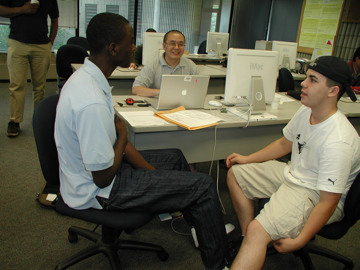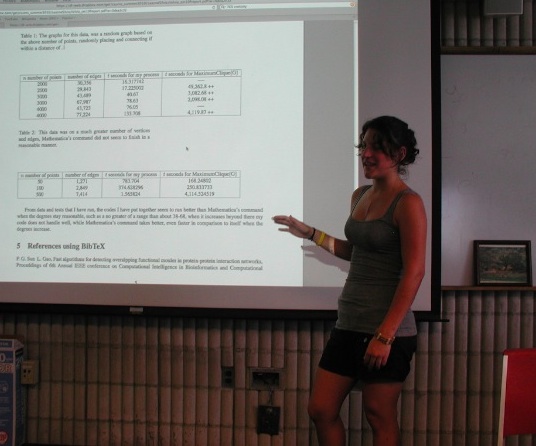Transformative mathematics education: 14 indicators of success
Posted by: Gary Ernest Davis on: October 20, 2010
Carolyn Foote, High School educator and “techno-librarian”, has an excellent article at The Huffington Post. Let me paraphrase her:
“Transformative school change needs to take a hard look at what really moves our students towards a “21st century (mathematics) education” — an education where students are working on inquiry-based, real world problems, and acknowledge the connected world they live in, where they can connect and learn globally, and where thinking and problem solving are valued over the memorization of (mathematical) facts and figures because they live in a Google-able world.”
Carolyn is talking about education in general, yet her words strike a deep chord with me in relation to the teaching and learning of mathematics K-20.
The work that my colleagues and I do in educating undergraduate mathematics students about computational mathematics is transformational for many – but not all- of those students.
x
x
It’s relatively easy to provide indicators of transformation:
- the desire a student shows to discuss their work both in and out of class,
- the depth and quality of their writing,
- their desire to hear from outside experts,
- their need for equipment and materials to pursue their project,
- the number of different projects with which they become engaged,
- the number of different students with whom they engage,
- the questions they ask of other students,
- the assistance they give to other students,
- the assistance they ask from other students,
- the breadth and depth of new mathematics and skills they desire to learn,
- the new employment opportunities they see,
- their desire for continuing education,
- coming to their teachers with new ideas for projects,
- forming clubs and societies dedicated to their mathematical work,
among other things.
These indicators are part of our method of assessment, yet they are not refined, or always easily quantifiable indicators. If someone asks why students earned an A in this course, we usually point to their ongoing and final written reports. Yet the other indicators tell us a lot about whether we are making a transformational impact on a student. Do they see see career opportunities that they did not before? Are they excited about particular subjects? About meeting up with local, national and international experts? Are they forming clubs and societies dedicated to their mathematical work? Are they coming to their teachers with new ideas for projects?
Carolyn Foote’s call for a 21st century transformative education is vitally important, in my view. I am sure it is important across the board in education. I know it is critical in mathematics education if we are to move away from the stultifying engagement with dull, routine exercises that commonly passes for mathematics education. It is critical if Paul Lockhart is to obtain relief from his, sadly eloquent, lament:Paul_Lockhart_A_Mathematician’s_Lament
I would dearly like to hear from other mathematics educators about their thoughts and efforts in providing transformative education for their students. If someone would like to write a guest post I am delighted to hear about it, and happy to provide the space and opportunity.



Leave a Reply